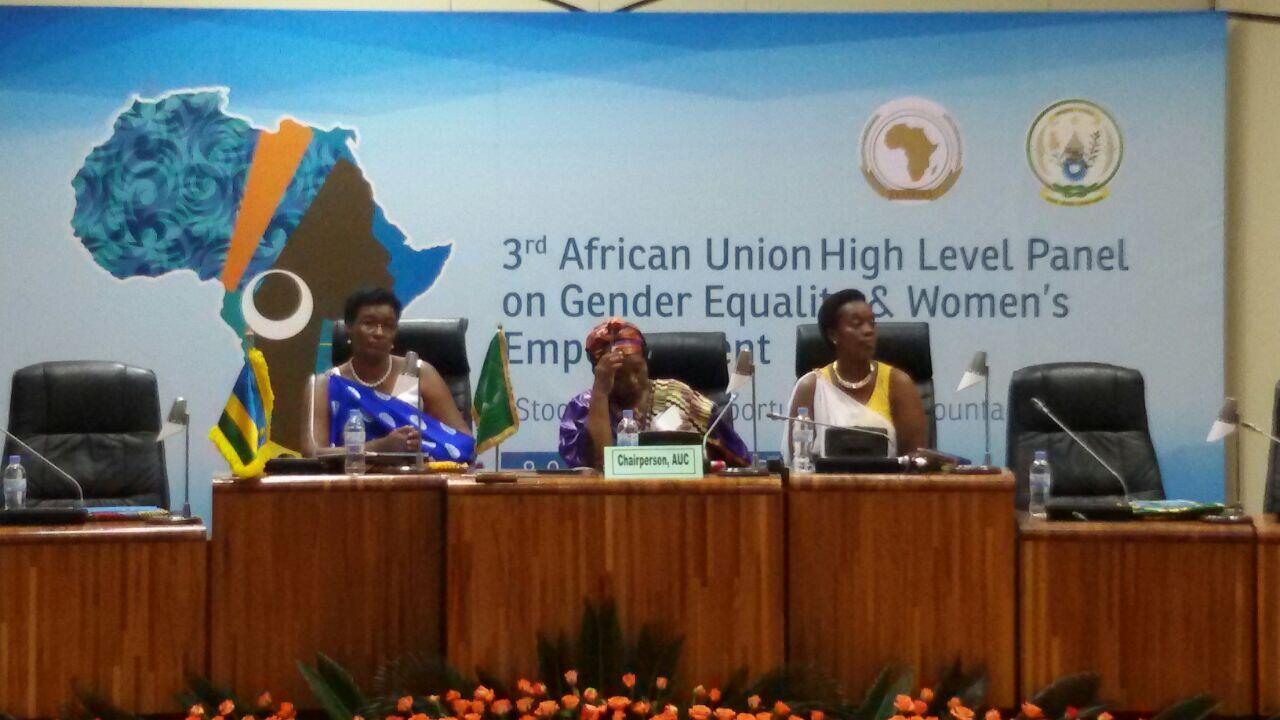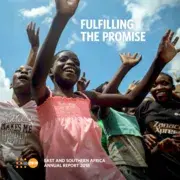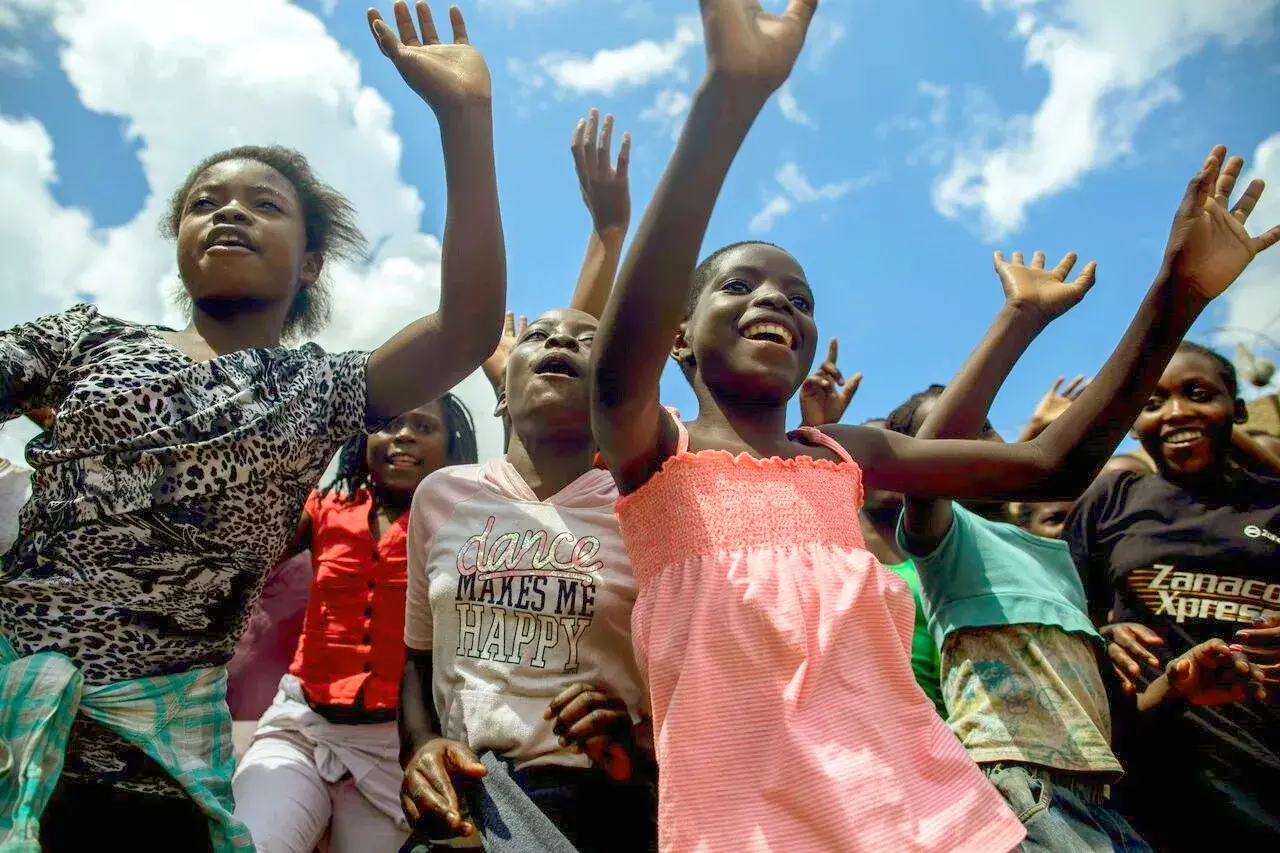Photo L-R: Mukabalisa Donatile, Rwanda Parliament Speaker, Dr. Nkosazana Dlamin Zuma, African Union Commission Chairperson, and Dr. Diane Gashuma, Rwanda Minister of Gender and Family Promotion in official launch
Prior to the 27th African Union Summit, Ministers and experts of gender from different countries in Africa convened in Kigali for the African Union high level panel to discuss gender equality and women’s empowerment under the theme “The Contributions of Maputo Protocol on Women’s Rights in Transforming Gender Roles in Africa: Stocktaking, Opportunities and Accountability”.
The Maputo Protocol, which entered into force 13 years ago, is a landmark legal instrument that aims to protect all rights of women, including from any form of discrimination and violence.
But some have questioned whether it has done much to safeguard the rights of women. The high level panel’s theme was self-explanatory, to which it should not only affirm the Maputo Protocol, but deeply interrogate African countries’ commitment to allow women all rights due to them.
Speaking to Dr. Ademola Olajide, Chief, Non-Core Funds at UNFPA, he pointed out that women’s access to sexual and reproductive health services especially family planning should be prioritized as authorities set strategies to invest in education, entrepreneurship, health, agriculture, as means to empower women and tackle gender inequality. It is a basic need and human right of all women including adolescents as clearly articulated in the 1994 International Conference on Population and Development (ICPD) Programme of Action.
Unplanned pregnancies and maternal health hinder success of the good programs and investments put in place to empower women.
“A woman might miss out a planting or harvesting season due to maternal health challenges which affects the productivity and income of the family in the long run” Dr. Ademola says
Traditionally, as common in many African countries women have limited rights to take decisions related to family matters especially when and how many numbers of children to have. The bigger number of children is seen as prestige yet in the end affects the health of a woman, finances of the family and a burden to the Nation.
It would be elusive to protect and respect human rights across the continent without considering provision and empowerment of women on reproductive health. Women and girls as one of the vulnerable groups especially in armed conflict, the greatest danger in such situations where we have seen women killed, losing maternal health services, and sexually abused.
To ensure the effective respect of human rights and that of women in particular, the inclusion of rights to reproductive health services should be at the forefront Africa’s commitment in days ahead.
The young people are the future and women are a biggest asset – but only if they be given a way to make them live healthy. For this, governments and donors must make the right investments in their future.
Harmful practices against women and girls
As stipulated in Maputo protocol – “Harmful Practices" means all behaviour, attitudes and/or practices which negatively affect the fundamental rights of women and girls, such as their right to life, health, dignity, education and physical integrity.
States Parties in Article 5 on Maputo protocol commits to elimination of harmful practices, prohibit and condemn all forms of harmful practices which negatively affect the human rights of women and which are contrary to recognized international standards. However in most countries, girls and women still encounter harmful practices such as Female Genital Mutilation (FGM), breast ironing, early child marriage, sexual gender based violence etc.
Nafissatou J. Diop, UNFPA’s Senior Adviser and Coordinator of UNFPA-UNICEF Joint Programme on FGM/C calls for protection of women who are at risk of being subjected to harmful practices or all other forms of violence, abuse and intolerance.
“Women should not suffer from such harmful practices because women are the heart of the family. We need to understand that the girl who undergoes FGM is the same girl who is taken out of school early to marry. And this is the same girl who dies before she reaches age 20, giving birth to her third unplanned birth. There is a long term impact of harmful practices accross the life-span of a woman. The long chain of discrimination starts with marking the girl body with FGM. No matter how limited resources are, governments and partners should support girls and women’s access and rights to sexual and reproductive health” Dr. Diop says.
Visit to the first generation of young girls protected from FGM, Afar Ethiopia 2015
“When the whole community value and protect girls and they receive sexual and reproductive health information they are able to stand up for themselves”. They are better able to meet their full potential, benefiting themselves, their families, their countries and the world.
“We are just like boys. It’s unfortunate that the countries we are born in have cultural malpractices that affect our ability to prove to the world that we can contribute to the prosperity of our country and continent. Empower us and invest in our education to support the fulfillment of our dreams and aspirations towards the Africa We Want” Wudalat, an Ethiopian teenage girl attending Gender is My Agenda Campaign in Kigali.
This year’s AU summit focus is on: African Year of Human Rights, with a particular focus on the Rights of Women.




